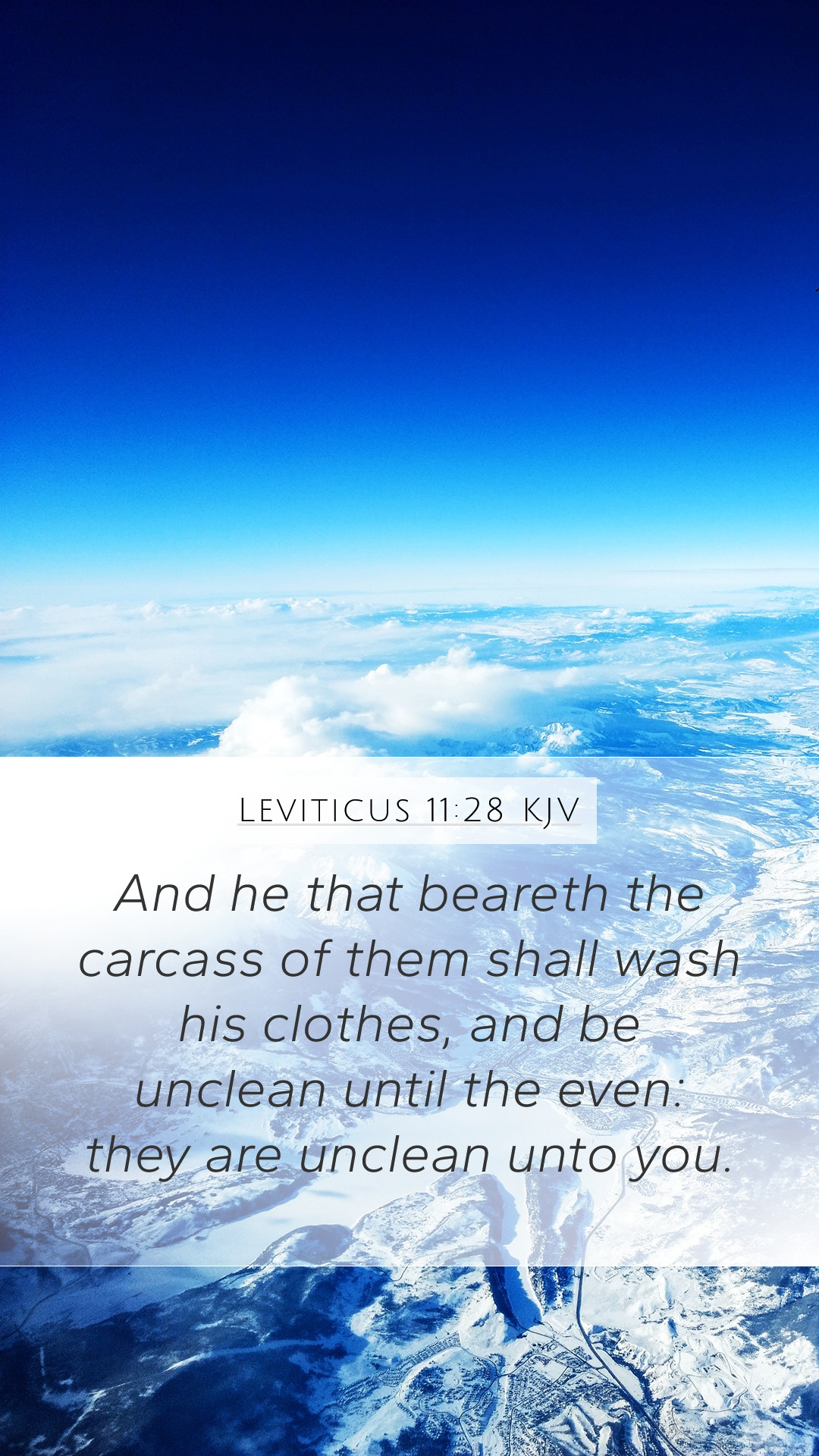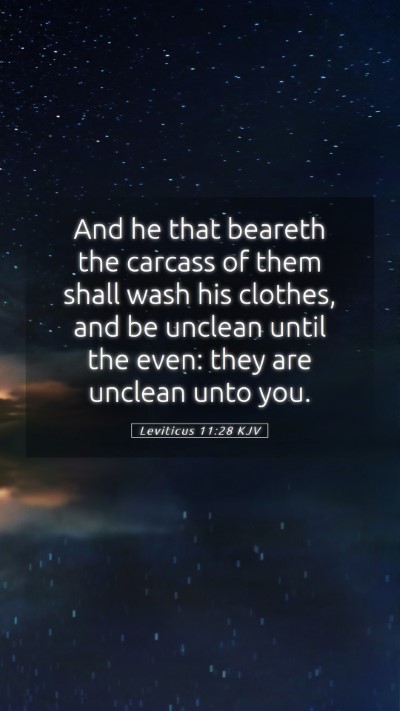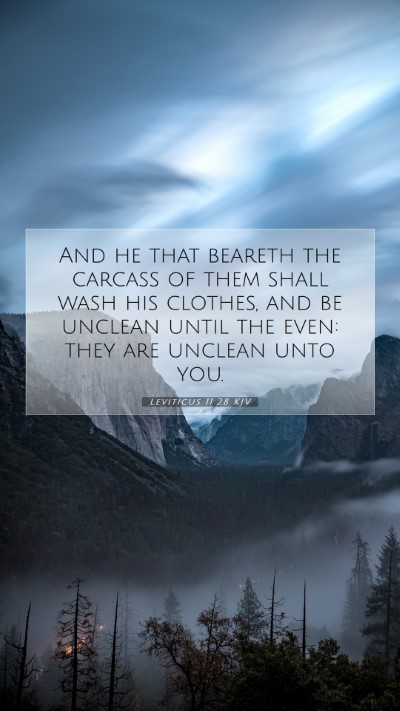Understanding Leviticus 11:28 - Bible Verse Commentary
Leviticus 11:28 states, “And he that beareth the carcass of them shall wash his clothes, and be unclean until the even: they are unclean unto you.” This verse falls within the dietary and purity laws set forth for the Israelites, delineating rules about clean and unclean animals and the consequent rituals of cleanliness.
Verse Context and Meaning
In Leviticus 11, God provides instructions on what constitutes clean and unclean animals, which was significant for the Israelites' identity and covenant with Him. The unclean animals were those that could not be consumed and were also associated with certain rituals to maintain holiness. This particular verse emphasizes the responsibility of the individuals handling unclean animals and the consequent ceremonial uncleanliness they would experience.
Insights from Public Domain Commentaries
-
Matthew Henry's Commentary:
Henry emphasizes the importance of cleanliness as a physical representation of spiritual purity. The washing of clothes signifies the necessary preparation to re-enter a state of purity after contact with something deemed unclean. This act symbolizes the moral obligation to remain holy as a reflection of one’s relationship with God.
-
Albert Barnes' Notes:
Barnes notes that the handling of unclean animals represents a wider principle of separation from sins and impurities. By illustrating that one must wash and remain unclean until evening, it underscores the seriousness of following God’s commandments and maintaining a lifestyle that reflects His holiness.
-
Adam Clarke’s Commentary:
Clarke elaborates that the laws regarding clean and unclean animals extended beyond dietary implications. They served as a means for the Israelites to understand their unique relationship with God and the call to be different from other nations. The cleansing ritual after contact with the carcass reinforces an ongoing commitment to holiness.
Spiritual Lessons and Applications
This verse not only gives a historical and ceremonial directive to the Israelites but also provides profound spiritual lessons applicable to modern believers:
- Holiness and Separation: Just as the Israelites were called to separate themselves from unclean animals, believers today are called to separate themselves from sin and impurity within their lives.
- Responsibility for Actions: The individual is held responsible for their actions and their effects on personal holiness. This reinforces the importance of being mindful of what we allow into our lives.
- Significance of Rituals: The washing of clothes as a ritual serves as a reminder of the ongoing process of sanctification and cleansing required to maintain a life that seeks to honor God.
Cross References
This verse connects to several other scriptures that expand on the themes of cleanliness, holiness, and dietary laws:
- Exodus 22:31: "And ye shall be holy men unto me."
- Leviticus 20:25: "Ye shall therefore put difference between clean beasts and unclean."
- Isaiah 52:11: "Depart ye, depart ye, go ye out from thence, touch no unclean thing."
- 1 Peter 1:16: “Because it is written, Be ye holy; for I am holy.”
Conclusion
Leviticus 11:28 serves as a reminder of the importance of holiness in the life of the believer. Through understanding Bible verse meanings and the context in which they were written, one can appreciate the deeper spiritual implications that extend beyond the ancient laws. The call to purity and righteousness remains relevant in the spiritual journey of believers today.


